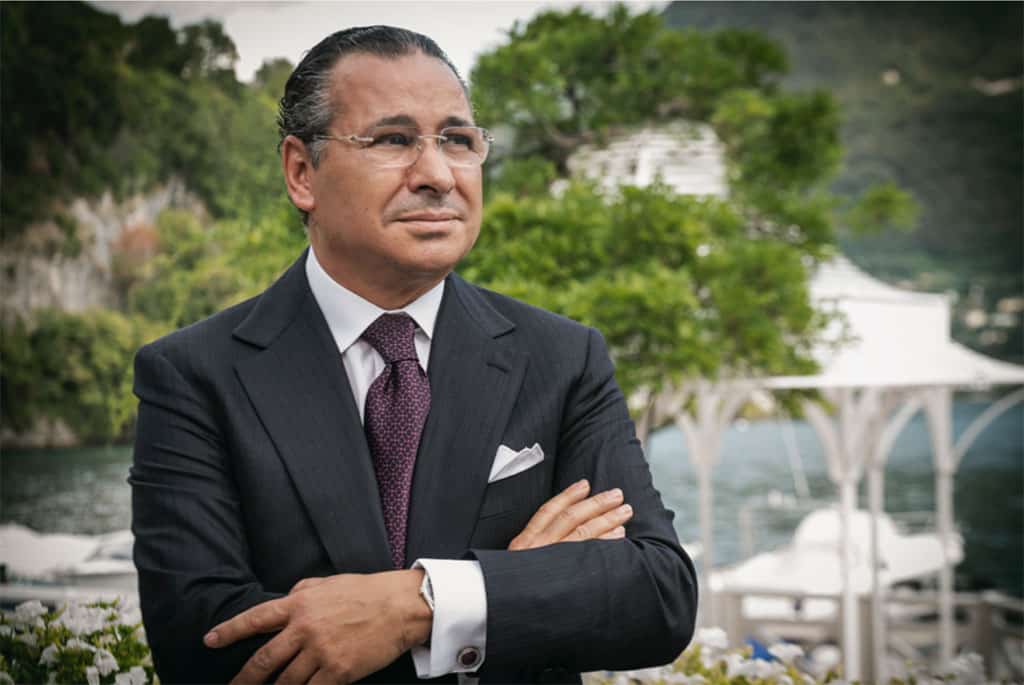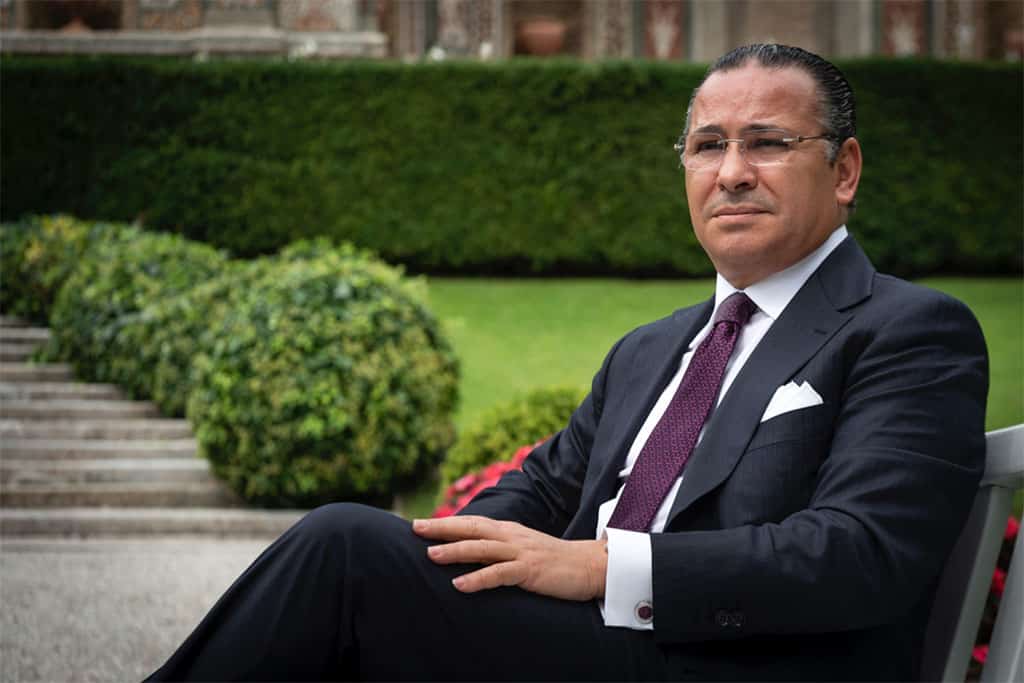The Key To Universal Health Coverage In Africa: Partnership Solutions

Tunisian hospital group leader, Kamel Ghribi, has a plan to help move the needle on universal health coverage in Africa. He shares his thoughts below:
Global health leaders are convening today with ministers and Heads of State in New York City with an elevated agenda to talk about universal health coverage as a UN top priority. With the theme Moving Together to Build a Healthier World, the high-level meeting aims to “accelerate progress toward universal health coverage (UHC), including financial risk protection, access to quality essential health-care services and access to safe, effective, quality and affordable essential medicines and vaccines for all.”
This is obviously a good thing.
However, for developing nations, specifically in Africa, top-level discussions won’t be enough. A new and more inclusive narrative on universal health coverage is urgently needed. Simply put, moving universal health care from rhetoric to reality will require global health initiatives to shift from being “disease-based” to ecosystem-based. Universal health care requires integrated health management and connected infrastructure —federated by dynamic local governance and inspired partnerships—if we really aspire for health coverage for all.
Paradoxically, what this more holistic approach implies—greater complexity and expense in the short-term—will ultimately entail in the mid-and long-term, far greater sustainability and cost-effectiveness in both human and financial terms. Essentially, if we address the whole, we have a far better chance of fixing the parts.
My own experience in the field informs this thinking.
As a self-made Tunisian entrepreneur, I followed an early opportunity that led to my investment in Gruppo San Donato (GSD), Italy’s leading hospital group and a pioneer in multiple research fields with world-class clinical programs. Today, GSD also hosts a robust portfolio of international medical partnerships across Africa, including collaborative health and hospital contracts with facilities and programs in Mozambique, Egypt, Tunisia, Morocco, Senegal, Nigeria, and Cameroon. In July 2019, we signed a ground-breaking Memorandum of Understanding with Botswana’s Ministry of Health and Wellbeing. Working on partnership solutions for advancing Africa’s health deficit is at the top of my professional and personal list of goals. Nothing is more important than getting this right.
What we have repeatedly observed and have attempted to address is the tendency of well-intended public health projects grafting fresh funding onto post-colonial models and inadequate infrastructure. Long-term sustainability ends up being lost due to flawed fundamentals, aging systems, and a lack of connected support. The old model has also favored sending Africa’s best and brightest medical students for training abroad, an enriching experience surely for the individual, nevertheless one that ultimately leaches Africa of its human resources rather than fueling the local public health offering. Many talented Africans end up staying at European and American hospitals, yielding to the enticements of good salaries and world-class facilities over the frustrations of ill-equipped facilities and unstable environments. To keep African health professionals in Africa, we need to create the infrastructure in which they can apply their skills, train locally, and continue to acquire and share knowledge transfer via stable, high-speed internet and digital links. Universal health coverage today in Africa is as much about IT, data sharing and partnerships as it is about hygiene and vaccines.
A highly trained heart surgeon is only as good as the reliable, consistent, and sustained hospital in which he or she is operating. Many delicate surgical interventions can and should be assisted via distanced imagery and online procedures. Quality health care insists on a coordinated master system of interconnected and uninterrupted sectors. There are a lot of moving parts, thus static thinking simply will not work on the scale that UN leaders in health are rightly talking about.
Today, if there is not enough adequately trained medical staff and a competent medical supply chain for equipment, supplies, maintenance, and knowledge consultation, then hospitals and the vision for universal health coverage, will sadly, fail to meet growing demand.
GSD’s program in congenital heart disease in partnership with the Bambini Cardiopatici nel Mondo for example is helping to manage the flow of the 50-60000 new cases of children born with congenital heart disease in the eight African countries where we operate. Only one in seven children currently in need of an operation is treated. In Senegal, we have added a cardio-vascular department with surgical missions and training to the Chain of Hope Pediatric Cardiac Center at the Dakar Fann University and successfully reduced waiting lists by treating 1350 children per year who would otherwise have had no chance of being treated locally. In Nigeria, we are building a new National Institute for Cardiovascular disease in Ibadan. In July 2019, former Group President and current Vice-President Paolo Rotelli and I signed a protocol with the Botswanan Health and Wellness Minister Dr. Alfred Madigele. The protocol aims to transform an existing hospital in Gabarone into a regional health center for much of southern Africa. Through the collaboration and full support of the GSD network of hospitals, we pledged to provide on-site training, infrastructure reinforcement and cross-discipline care in cardiology, pediatric medicine, and urology.
With international health as a global priority, the UN meetings are focusing on determining baseline standards for health care, and more importantly, strategies for collectively reaching that baseline. On the one hand, we insist on the identity of Africa as 54 independent nations, while on the other, we search for unified policy applications for the entire continent. The range in lack of basic needs is far too broad for policy makers to impose standard fixes. What is needed is an overarching political and philosophical statement of values and a nation-by-nation action plan for coordinated national health planning that is supported by international private-sector health management contracts. Essentially, in each country or market, we need to diagnose, plan, and intervene on a national, case-by-case basis. Precisely as we would operate on patients.
Aside from approaching heath care with a list of unified remedies, the international health community needs to see health care, diseases, and public health issues from the root causes of illness to the sustained needs for wellness.
Health care has a direct relationship to poverty. And climate. And housing. And hygiene. Health care is on the front lines in war zones and migration and refugee patterns. Thus, political stability and good governance are central to health care too. Consequently, a minimum standard for universal health care is not possible without stability and cooperation.
While we cannot fix everything at once, we can take significant steps in building hospitals and relationships designed to last. Training practitioners and signing partnerships may be the most constructive first steps.
The development of regional training centers in areas of greatest need will be a constructive insurance against the brain drain. It’s cheaper to keep talent than to entice them back. With those savings and available local talent it’s possible to leverage public-private-partnerships with companies like GSD and others that would see them share competencies and manage African hospitals in contracts that include the management training with local companies ready to assume the long-term tasks. Well connected, appropriately scaled medical centers and clinics in geo-strategic locations across Africa will accelerate the herculean goals being discussed today for a shared outcome of universal health coverage.
Kamel Ghribi is a Tunisian business leader based in Milan, Italy. He is Vice Chair of the Board of Gruppo San Donato, Italy’s largest private health care organization. GSD operates in partnership in several countries in the Middle East and Africa.
Have you read?
Best Hotels In Oahu (Hawaii), Las Vegas, Berlin, Vienna, and Paris.
Add CEOWORLD magazine to your Google News feed.
Follow CEOWORLD magazine headlines on: Google News, LinkedIn, Twitter, and Facebook.
Copyright 2024 The CEOWORLD magazine. All rights reserved. This material (and any extract from it) must not be copied, redistributed or placed on any website, without CEOWORLD magazine' prior written consent. For media queries, please contact: info@ceoworld.biz









